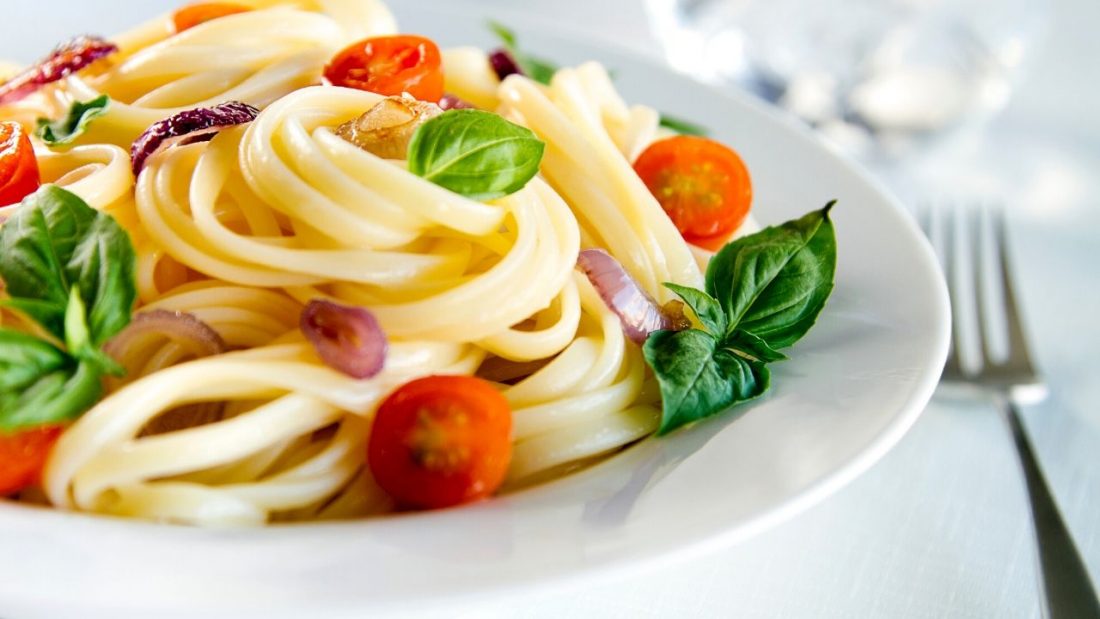“Can I really eat anything?” is a common question that I am asked when I describe the Eating for You approach. After being on a restricted diet, so many clients say, I am happy that I can eat pasta, bread, fruit, chocolate, or whatever the food is that they are missing!
The Eating for You approach being based on mindful eating, encourages you to tune into your appetite and hunger signals, and to chose what will nourish you in the current moment.
Foods and drinks that provide nourishment sustain your energy levels, support your digestive system, and enhance your experience of health and wellbeing.
So a simple answer to this question, “Can I really eat anything?” is yes!
The only exception is if you have been advised by your healthcare practitioner to limit or avoid certain foods due to a diagnosed food allergy or intolerance, or another health condition.
However, there might be other foods that you have been avoiding unnecessarily, due to dieting rules.
Can I really eat anything?
If you are wanting to move away from restrictive diets, then to help explain this alternative approach, I will describe five main differences between diets and mindful eating.
#1 Focus on habits, not foods
Mindful eating guides you to recognise the difference between hunger and eating for other reasons.
And encourages you to eat when you are hungry, and finish before you are full.
The Eating for You drivers, or reasons for eating, include physiological hunger, health, convenience, emotions and stress, and pleasure.
Feeling nourished occurs when you eat enough to satisfy physical hunger without being full and choosing foods that you enjoy, sustain your energy levels, and support your health.
#2 Choose but don’t restrict
The restrictive nature of dieting often means that the question “Can I really eat anything?” is asked with a tone of amazement or relief.
Often when we crave high sugar or high fat processed foods, it is little to do with physical hunger.
These cravings can be linked to boredom or emotional eating, or perhaps a lack of quality sleep.
Restricting these foods is not going to make the boredom or emotional eating habit disappear.
And it certainly not going to help you balance your appetite hormones if you are sleep deprived!
Through practicing mindful eating you will connect with the food rules that have led you to try to avoid certain foods.
It can take a little time to change the inner voice in your head that directs what you eat.
And sometimes we just want to eat sweet foods because we think we can’t eat them! We want to be a rebel.
#3 Avoid labelling foods as good or bad
The very nature of restricting certain foods on a diet means you have a history of labelling foods as good or bad.
Unfortunately, when you have been unable to stick to a diet, you end up labelling yourself as bad too, or as a person who lacks willpower.
Dieting creates this all or nothing mentality around food, whereas mindful eating encourages you to think about what you want to eat and how much you might need.
The mindful eating practice is about observing your food choices, rather than judging them.
#4 Gain confidence without following someone else’s rules
It can be daunting stepping away from food rules because diets tell you what to eat and how much. Some even tell you when to eat, regardless of whether you are hungry or not.
Mindful eating gives you the confidence to eat when you are hungry, and choose the foods that you believe will best nourish you in the current moment.
So by nourishment, I mean foods and drinks that sustain your energy levels and support your digestive system.
This usually means that there aren’t any foods that you need to avoid, unless you have been diagnosed by your healthcare practitioner with a food allergy or intolerance, or another condition that requires you to limit or avoid certain foods.
It is more about how much you can eat of each food to feel well-nourished.
Mindfulness helps you connect with how your food choices are making your mind-body feel.
You become more aware of whether your choices are supporting you or not and more confident to change the way that you eat.
#5 Seek a long term solution, rather than a quick fix
Mindful eating evolves with you.
As you become more aware of how eating different foods and amounts of food impact on your health and experience of wellbeing,
You can adjust what and how much you eat.
It is a process of getting to know yourself and your food.
It doesn’t promise quick fixes, but it is an approach that you can use forever.
Our health requirements all differ and our lifestyles vary, so it is unrealistic to expect that we all need to eat in the same way.
So, Eating for You really encourages you to find out what you need to eat to support your special and unique self.
If you would like to start working on your eating habits, then consider joining me in an Eating Habit Profile.
I offer these for free because I know you have tried multiple diets and programs, and now want something that is going to work long term.
If this sounds like you, then you are welcome to book in now.
I have a few spots available in my calendar. Just click on the button below.


